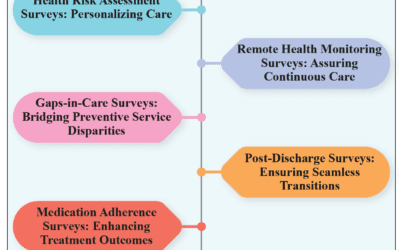Survey Platform Success Blueprint
Sci-précis Survey Platform by WorkSure
A survey is a research technique that involves collecting information, data, and feedback from a specific group of individuals through a set of focused questions. Surveys provide a valuable means of obtaining targeted insights from a large number of people, whether they are customers, employees, or a specific target market. Surveys aim to derive conclusions about a larger population by analyzing the collected data. By utilizing surveys, businesses can acquire crucial information about consumer opinions, attitudes, and behaviors, whether it’s obtaining feedback on an event or gaining a better understanding of customers’ sentiments towards a product. When creating a survey, the choice of question types plays a crucial role in obtaining reliable data. Each question type has its strengths and is suitable for specific survey objectives.
Common Survey Question Types:
- Multiple Choice Questions: The most widely used question type in online surveys, multiple choice questions offer respondents a range of answer options. They are intuitive, quick, and provide easy-to-analyze data. Careful consideration should be given to the answer options provided to shape accurate results.
- Matrix Questions: To cover multiple questions efficiently, matrix-style questions present a grid of related multiple-choice questions. They are effective in saving respondents’ time, but clarity is essential to avoid confusion. It is essential to ensure all questions are distinguishable and relevant to the overall topic.
- Ranking Questions: Ranking questions allow respondents to prioritize answer options. This question type is valuable when comparing different elements. Clear instructions on how to rank the options and the order of the scales should be provided for accurate responses.
- Likert Scale Questions: Likert scale questions measure respondents’ opinions on a topic with opposing concepts. They are simple to understand and enable quantitative analysis. Scale options ranging from 3 to 7 points can be used, but higher-end scales help reduce neutral responses.
- Slider Questions: Slider questions utilize graphical rating scales, where respondents move a pointer along a numerical scale to indicate their answers. This engaging question type works well on both desktop and mobile devices, enhancing survey participation.
- Open-Ended Questions: Open-ended questions allow respondents to provide their opinions and insights. They are effective for gathering qualitative data but should be used sparingly due to the effort required to answer. Providing clear instructions and relevant context improves the quality of responses.
Tips to Maximize Survey Results:
- Keeping the Questionnaire Short: Concise surveys have a positive impact on response rates. Surveys that take less than five minutes to complete, with around 15 questions, tend to have higher response rates.
- Using the Funnel Technique: This involves structuring the questionnaire with broad and easy questions at the beginning, gradually progressing to more challenging ones, and ending with broader and easier questions. This approach keeps respondents engaged and encourages survey completion.
- Considering Ringer Questions: Adding occasional irrelevant but interesting questions can spice up a survey, but it is important to use them sparingly to avoid diverting respondents from the main topic.
- Implementing Randomization: One way to minimize bias in surveys is by implementing randomization. This technique ensures fairness by presenting answer choices in different sequences for each respondent.
- Maintaining a Clear Writing Style: Another key tip is to maintain a clear writing style in surveys. Using simple language, straightforward sentences, and easy answer choices can improve user engagement and survey completion rates by enhancing clarity and simplicity.
Conclusion
Understanding various survey question types and implementing best practices is essential for obtaining meaningful and actionable survey results. Depending on the researcher’s objectives and areas of interest, surveys can be designed in various ways. WorkSure® Sci-précis is a survey platform that offers a wide range of question types to meet your survey needs effectively. By leveraging these tools and incorporating the tips mentioned, you can unlock the true potential of your surveys and make informed decisions based on reliable data. Start optimizing your surveys with WorkSure® Sci-précis today!

